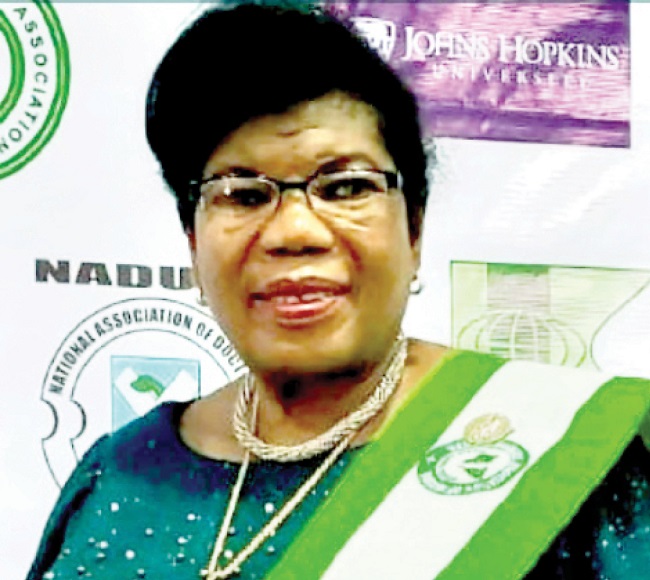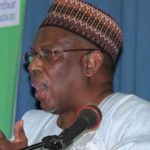National President, Medical Women’s Association of Nigeria (MWAN), Dr Adekemi Otolorin in this interview by SADE OGUNTOLA, says the poor health status of Nigerian women is unacceptable and further worsened by gender inequality, among many other issues.
.
HOW will you rate the health of Nigerian women and what are the predominant health conditions they face?
Women generally suffer from the same diseases as men: diabetes, hypertension, tuberculosis, malaria, among others. However, in addition to these communicable and non-communicable diseases, women have other illnesses peculiar to them. For example, women bear the brunt of complications of pregnancy and childbirth, sometimes leading to their death. As you know, Nigeria has one of the highest maternal mortality ratios in the world (576 maternal deaths per 100,000 live births). That’s unacceptable, especially when we know that 95% of those deaths are preventable. Sadly, many of these pregnancies were actually unplanned due to inequitable access to family planning services. Ignorance, lack of spousal support and misconceptions lead many of these women to have babies by chance and not by choice.
Women also suffer from breast and cervical cancer and many reports are very late for treatment because of ignorance and poverty. Women’s economic dependence on men often leads to their poor health-seeking behaviour while many take the option of taking their health challenges to spiritualists and herbalists who often compound their problem.
Can you assess the adequacy of health care services for them?
Given the God-given role that women play in the continuation of the human race, our expectation is that they will receive special care. Sexual and reproductive health services for women should be free of charge or at best affordable. This is not the case in Nigeria. Sadly, up to 70% of health care expenses in Nigeria are out-of-pocket expenses. So many women shun modern health facilities and go in search of prayers or look for cheap options by buying drugs from patent medicine vendors who cannot diagnose but sell fake and often inappropriate medications. Granted, modern health care is expensive but the availability of health insurance is expected to cushion the effect on individual pockets.
What should be done differently to ensure all women have universal health coverage and maintain good health?
Ensure full implementation of the Basic Health Care provision Fund so that all women of reproductive age and children under the age of 5 years receive free health services under the national health insurance scheme (NHIS). They are the most vulnerable group and constitute the highest burden of ill health. Antenatal care, delivery care, postpartum care, postpartum family planning, vaccination of children, nutrition monitoring, among others, should be provided free. Girls aged 9 to 13 years should have HPV vaccine to prevent cervical cancer in the future.
IN CASE YOU MISSED THESE FROM NIGERIAN TRIBUNE
- ‘Officials initially offered to help but when the number of able-bodied citizens at the centre increased, they left us unattended to’
- Why Ogun Tops List Of ‘Yahoo Boys’ In Nigeria ― Governor Abiodun
- Police, Amotekun after criminals on Lagos-Ibadan expressway
- Suspected cannibal pays N500,000 for boy’s human organs, says ‘that’s my favourite meal, especially the throat’
- Court awards Nnamdi Kanu N1 billion over invasion of his home by military, asks FG to apologise
What challenges do women of today face different from those of the past generations of woman that need to be looked into to ensure they enjoy good health?
Today’s modern woman is a working mother, juggling a very delicate work-life balance. In the past, working mothers had strong support systems; in place for the care of the home, their own mothers, mothers-in-law, siblings, relatives, house helps were there. Today, the support system has broken down. So, working women are extremely stressed by work and the demands of home care. To make matters worse, they are discriminated against when it comes to equal pay for equal work, and in promotions at work. They are often overlooked for leadership positions. Even in the political arena, they are marginalised. In Nigeria, only 4% of 469 National Assembly members are women, despite a clarion call for 35% affirmative action.
Every woman should have unrestrained access to health information and services at a health facility of their choice. How true is this?
Yes, this is true. Health is a fundamental human right that all women should enjoy irrespective of race, residence, religion, ethnicity or economic level. Health and wellness messages should saturate all media outlets in the country. You don’t get to a health facility before you hear preventive messages. Everyone should know the importance of hand-washing, sleeping under insecticide nets, boiling unsafe water before drinking, using family planning for healthy spacing of pregnancies, among others. In addition, health care workers will give health talks in health facilities to augment patient care.
Should women have the freedom to decide and act on issues concerning pregnancy, childbirth and childcare?
Absolutely. Unfortunately, the power dynamics in the home of many women makes them vulnerable to decision-making by other members of their family. When the woman is educated and economically empowered, she may begin to take her own decisions about her own body.
How best can we engage women to be more proactive about their health and that of their children?
We need to start with the education of the girl-child. When more girls are educated things will start to change. An educated and economically independent woman is an asset to the nation. Even those who are uneducated but do all the household chores of a housewife deserve to be financially compensated. Housework is a full-time job that is often not compensated. We also need to embark on mass education of the public about the health challenges of women and make provisions for Universal Health Coverage using the Basic Health Care Provision Fund. Nigeria also needs to increase its health budget to 15% of the national budget as recommended in the Abuja Declaration
As a woman and a professional, what is your advice on how best women can influence policies that affect them, their families and work?
Women have to be intentional in seeking leadership positions where decisions are being made about their health and wellbeing. Can you imagine what happened recently during the constitution amendment hearing? The First Lady went with other women to solicit support for the 35% affirmative action for female members of the National Assembly. The 96% male-dominated assembly threw the idea away. That’s pure political discrimination. Therefore it is important for women to get into these decision-making bodies and we have to be intentional about it.
What is your advice to women as Nigerian women join others to celebrate the international women’s day?
Women must rise with one voice and #BreakTheBias. We must say no to political marginalisation of women, unequal representation of women in decision-making bodies, especially where decisions affecting women are taken, educational marginalisation, gender-based violence, discriminatory employment practices, unpaid labour in the home and inequity in accessing health care services. We must demand equal opportunities for all men and women including into leadership positions at all levels.






